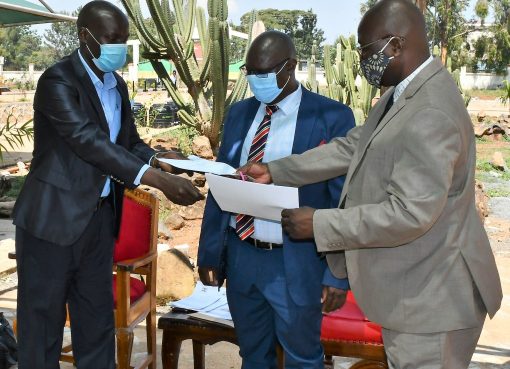The Commission for Revenue Allocation (CRA) has lauded Nyandarua County’s steady growth of its Own Source Revenue, even as over ambitious revenue projections are cited for huge pending bills in the Counties.
While acknowledging the fluctuations in revenue collection against the projections across the 47 counties, CRA also regretted that political interference had a major impact on reductions in local revenue collections that lagged at a national average of 30 percent.
Joseph Kuria, a representative of CRA at the peer learning forum on public finance management, noted the steady growth in local revenue collection in Nyandarua from Sh.138 million (80 percent of projection) in 2013/2014 to Sh403 million (98 percent of projection), as remarkable saying overstatement of projections had negatively impacted on project implementation in counties, in the past.
“The new crop of governors came in with reshuffles and flushing out of county executive members for finance, ICT officials and other revenue collection officials, which had a major impact on revenue during the transitions,” noted Kuria.
He spoke in Ol Joroorok, Nyandarua County during a peer-learning forum on public finance management, which brought together county officials from Kericho, Samburu, Turkana, Lamu, among others, in learning from Nyandarua’s processes that made it get an Unqualified Audit Report.
The Auditor General’s office, early this year, gave Nyandarua and Makueni counties a clean bill of health as they had satisfactorily complied with acceptable accounting principles.
A question on what formula was used to set out the amount for own-source revenue remained unclear for the county officials who confessed using the projections to cover for the budget deficits.
“We have always ensured that our budgets are drawn based on the County Fiscal Strategy Paper, which borrows from the Annual Development Plans that are an exact replica of the County Integrated Development Plans.
“This also means that no payments are done for projects undertaken outside of the planning framework,” noted Nyandarua County Acting Chief Officer for Finance, Muigai Wainaina.
The Makueni County Executive Member for Finance, Mary Kimanzi shared the county’s adoption of Cabinet Papers in estimating the cost of projects coupled with strong procurement processes, noting that this had reduced pending bills that resulted from poor budgeting.
“There is need to engage key stakeholders like the Chamber of Commerce members in setting out fees and levies. This translates to compliance and in turn improved revenue collections,” noted Kericho County’s Head of Internal Audit Ouma Kenneth who also called for stringent adhering to e-procurement process.
By Anne Sabuni




